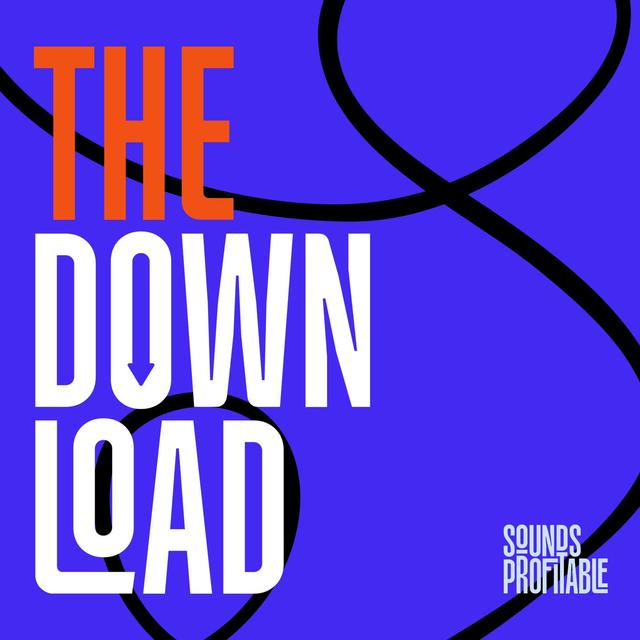This is the download from Sounds Profitable, your daily source for the essential news in the business of podcasting, brought to you by Spreaker from iHeart. I'm Gavin Gaddis, chasing off congestion with a pitchfork. Here's what you need to know for today, Wednesday, December 11th. First up, Amazon's online dealership with Hyundai is now live. Starting yesterday, shoppers in 48 U.S. cities can shop for Hyundai vehicles on a new Amazon car shopping spinoff dubbed Amazon Auto.
The arrangement acts as a storefront for dealerships to list their inventory and for customers to order, finance, and arrange delivery all within an Amazon storefront. While interesting in its own right, from a podcasting perspective one only has to look at Amazon's current system to see potential for something big. Amazon's DSP integration with podcast host Art19 would be a natural fit to lean into direct-to-consumer car ads being deployed in Art19 podcasts.
Podcasts have moved countless mattresses over the years. Imagine the affiliate rate or commission on shifting a car. Next up, an extensive survey and history of podcasting in New Zealand by Louis Tennant.
An academic study looking into the history of podcasting in New Zealand from 2005 onward encompassing 722 podcasts made locally, as well as a broad examination of podcasting in the country overall. In addition to tracking specifically... in New Zealand, Tenet's research highlights big gaps in the industry overall.
such as inconsistencies with podcast terminology, a lack of a ubiquitous list for podcast formats and definitions, and the fact that outside of the confines of true crime, most podcast genres lack enough specificity to clearly define a a lot of shows. Next up, the podcast middle class will continue to shrink by Alex Sujong Laughlin.
In a Neiman Lab prediction for 2025, Laughlin predicts a growing trend in podcasting that could amplify next year. Growing difficulties for podcasts living in the middle class. $100,000 to $500,000 production range in budget. While the gold rush of the 2010s in podcasting was not perfect with its land-grab mentality, it was an environment in which shows big enough to sell ads could exist without expectations of dominating the charts. Contained quality productions.
With $100 million deals being made even after the end of quote-unquote dumb money in podcasting, the middle class is shrinking and at a risk of shrinking further, as money is funneled more into a handful of expensive big-ticket podcasters. Possible future akin to the state of comedy films in mainstream Hollywood, where up-and-comers are only trusted with low-budget experiments, while the rest of funding goes to massive projects with big-name celebrities carrying the project.
Next up, the kids are online. How brands are navigating Gen Alpha marketing. The elders of Gen Alpha, largely classified as those born between 2010 and now, are in their early teen years and have only experienced a world with social media and influencers. They're coming of age in a world where most tween brands aimed at older kids, for example, Teen People or American Girl magazine, have faded away, leaving Gen Alpha to consume content largely aimed at adults and to favor brands not explicitly.
designed for kids. Some brands such as Drunk Elephant have leaned into Gen Alpha attention by designating which of their products are safe for kids to use, while others have established formal relationships with Alpha influencers such as Cult Gaia. and Claire's working with a 13-year-old Evelyn Unruh.
And finally, the year the memes took over reality and marketing followed. Memes have come a long way from the 4chan-generated image macro templates of the 2000s now dominating pop culture. Recent highlights include Haley Hawk Tua Welch. writing a viral TikTok to podcasting fame, only to spiral into controversy when her Hawk Tua-themed cryptocurrency was allegedly outed as a rug pull.
Seb Joseph's overview of memes and marketing highlights the core premise that social media, by design, favors controversy. Angry comments and positive comments hold the same value a lot of places. As such, most memes are inherently bread from controversy, so marketers should use caution and consider the implications of what they're doing before firing off a quippy Instagram post.
Audio of Kendrick Lamar shouting mustard in the new song TV Off is a viral TikTok sound, but to use it is to tacitly declare a side in the Kendrick and Drake beef and incur the wrath of Drake's remaining fanbase. As for the rest of the news, Station has launched a Discord for podcasts to help shows build fan communities. Lemonada Media has partnered with Gretchen Rubin Media to distribute shows on the network.
Libsyn is reminding shareholders that its tender offer to purchase common stock shares will be ending soon. Audioboom has posted their Q3 performance report, including a $3.1 million adjusted EBITDA profit. Headliner has released an AI-powered generator for social media captions. Entertainment platform Live One and audio advertising company DAX US have announced a new partnership, and audio ad tech platform AMA has named Paul Kelly as its new CEO.
Be sure to check out the links to every article mentioned right in your podcast listening app or at soundsprofitable.com. You can also subscribe to the newsletter version. The download is written and produced by myself, Newton Shadokati, Brian Barletta, Tom Webster, and the Tylenol I took an hour ago. This episode is hosted on Spreaker. For Sounds Profitable, I'm Gavin Gaddis. See you tomorrow.
